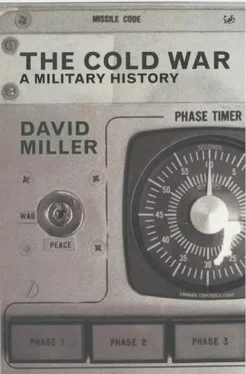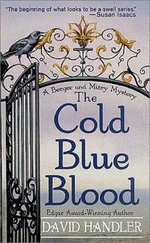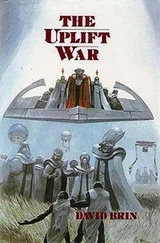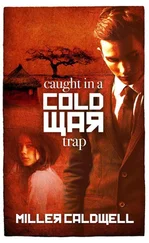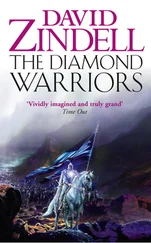Hungary fought during the Second World War on the German side, and on withdrawal of the Germans it signed an armistice with the Soviet Union which included provision for purging fascists and war criminals. Hungarian Communists returning to the country used the armistice as a mandate to eliminate unwanted democrats, and to expropriate property, not only from ethnic Germans and fascists, but also from the Catholic Church. Elections in 1945 resulted in the Small Landholders Party obtaining 60 per cent of the seats, while the Communists gained only 17 per cent, but in 1947 the Communists ‘revealed conspiracies’ by members of the Small Landholders Party which led to trials of some 220 members. The prime minister fled to Switzerland, but many others disappeared never to be seen again. New elections resulted in the victory of the Communist Party, and the country was forced to sign a trade pact with the Soviet Union on 14 July; thus Hungary too was firmly in the Soviet camp.
Poland had been overrun by the Red Army in 1944–5 and the Soviets stepped in quickly to install a provisional government (known as ‘the Lublin Committee’), thus outwitting the government-in-exile, which was still in London. In the post-war border adjustments Poland lost its eastern territories to the Soviet Union, while its western border with Germany was moved westward to the line of the rivers Oder and Neisse. The Polish Communist Party gradually eliminated opposition parties, and Stanislaw Mikołajczyk, the leader of the most powerful opposition group, the Agrarian Party, was warned of his imminent arrest in October 1947 and fled to London, thus escaping almost certain death. By 1948 Poland too was fully under Communist control.
In Romania, the small Communist Party formed the national Democratic Front with the Socialists and the Peasant Workers Front. This coalition won 90 per cent of the votes in the 1946 election, and when the opposition sought to dispute the result it was eliminated. In July 1947 Iuliu Maniu, the leader of the National Peasant Party, was tried and sentenced to solitary confinement for life, and in December 1947 the king was forced to abdicate. The ‘Unity Party’, under the Communist Gheorghe Gheorgiu-Dej, then took power in early 1948.
In Yugoslavia, the Communist Tito was the predominant partisan leader, and he immediately took power in 1945. Soviet troops, which had arrived in the country in December 1944, left in March 1945. Tito’s Popular Liberation Front obtained 90 per cent of the votes in the 1945 election, which was followed by widespread purging of political opponents and the nationalization of trade, industry, bank and social insurance. Yugoslavia signed a Mutual Assistance Pact with the Soviet Union in 1945 and appeared for a short time to be a firm member of the Soviet bloc, but in 1948 Tito broke with Stalin, who then, very unwisely (from his point of view), imposed an economic blockade, which forced Tito to turn to the West.
COMMUNISTS IN WESTERN EUROPE
Soviet activities were not confined to eastern Europe. Virtually all countries in western Europe had a domestic Communist party, most of which during the war had achieved a degree of respectability which stemmed in large part from their role in wartime resistance movements. There was also a widely felt admiration for the role played by the Soviet Union and its people in defeating Germany.
Perhaps the strongest Communist party in the West was in France, where it had numerous seats in the National Assembly, was very powerful in the trade-union movement, and even held four posts in the Cabinet, including that of minister of defence. The Communists managed to perform some extraordinary gyrations, one the one hand dancing to the dictates of Moscow (for example, by generating street violence in late 1947 as instructed at the Cominform meeting in mid-1947) and on the other by co-operation with General Charles De Gaulle [1] When attending the dedication of France’s new, nuclear-powered aircraft carrier, which is named after the general, I enquired about the correct spelling of the name. The general’s son informed me that his father had wished the ‘De’ to be capitalized, and I see no reason not to follow this advice.
in opposition to the Marshall Plan and to NATO.
Italy, too, was in turmoil, with numerous political parties and former resistance groups all jostling for power – the situation being further complicated by the forcible return of ‘repatriated’ Italians from Yugoslavia and the colonies, and by the purging of the Fascists. The Christian Democrats emerged as the predominant political force, but the Communist Party, led by Palmiro Togliatti, was the second most powerful.
The Greek civil war had started even before the Germans departed in 1944, and British troops were forced to intervene to restore order. After a short-lived armistice, the Communists sought to take the country over by force and initially achieved some success, not least because they were able to operate out of sanctuaries in Albania, Bulgaria and Yugoslavia. Initially, the government forces did not do well against them, their problems being exacerbated by the British withdrawal of support, for economic reasons, in 1947. But eventually the United States stepped in and ensured the government’s victory.
Nowhere, however, did the issues seem to be so well delineated as in the former German capital of Berlin, which had been split between the four wartime Allies in 1945, with the Soviet Union ruling the eastern half, while the three other Allies shared the western half. In the early years, relations between the Eastern and Western occupying powers reflected their disagreements at the United Nations, but Berlin itself occupied the centre of the stage when the Berlin blockade was imposed in 1947, as is described in more detail in Chapter 32 32 Berlin: Front-Line City of the Cold War THROUGHOUT THE COLD War there was no other place or group of people that epitomized the issues at stake as clearly as Berlin and the Berliners; indeed, on more than one occasion, events in and around Berlin dragged Europe – and the world – to the brink of war. The city’s curious status stemmed in part from its role as the traditional capital first of Prussia and then of united Germany (from 1871), but mainly from its political and emotional significance as the capital city of, first, Kaiser Wilhelm II’s Imperial Germany and subsequently of Hitler’s Third Reich. Thus the very name ‘Berlin’ struck a chill into the hearts of its enemies, and reaching and controlling it became the symbolic military goal of all four Allies during the Second World War.
.
Efforts to achieve a comprehensive peace treaty began in Paris in July 1946 and continued through to February 1947, with a number of agreements being reached. Among these were that Italy should pay reparations, lose its colonies, and give up Trieste, which would become a free state under UN supervision, while Hungary would revert to its 1937 borders and the Soviet seizure of Bessarabia and Bukovina from Romania was made legal. Finland was treated particularly harshly, the loss of Karelia to the USSR being made permanent, while strict limits were placed on its military capabilities.
Thus the picture of Europe in this period was one of a continent where order was slowly being restored, but with poverty and misery still widespread. Tens of millions of displaced persons were on the move, requiring resettlement somewhere, and, on top of all this, the Soviet Union was progressively imposing control over eastern Europe. In this latter process, non-Communist national leaders were being ousted and, more often than not, killed, and it was clear that if the Communists won the civil war in Greece the same would happen there. Also, in almost every diplomatic forum where Soviets met Westerners, such as the United Nations and the Six-Power Conference on Germany, the Soviet representatives either caused endless difficulties or simply exercised their veto.
Читать дальше
